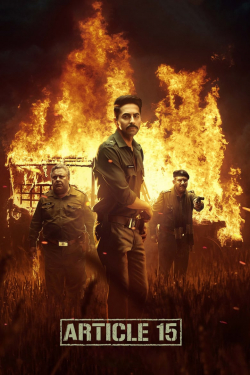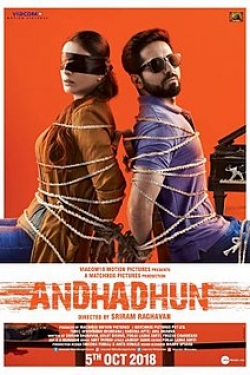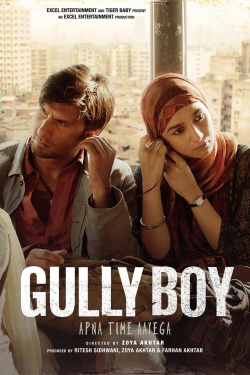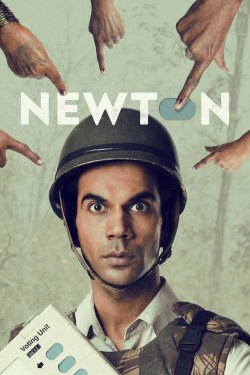Top Rated Films
Anna MM Vetticad's Film Reviews
-
The Muzaffarnagar riots are a blot on contemporary history and the wounds from that blaze are yet to heal. It is almost criminal to use references to this human tragedy to draw audiences into a deafening, unimaginative, ordinary film.
-
Raman Raghav 2.0 is layered, gripping from the word go, unnerving and, in a twisted way, hugely entertaining. It is also a stinging commentary on the times we live in.
He is back, people. Anurag Kashyap is back. -
The first half of Udta Punjab is consistently grim, deeply disturbing and, appropriately, almost docu-feature-like. The second half though is intermittently farcical and ultimately makes a mockery of the concerns it set out to raise.
-
It is a measure of Te3n’s strengths that, in the overall analysis, these complaints recede into the background. It is so wonderful to see director Sujoy Ghosh who gave us Kahaani, backing this film as a producer. Ribhu Dasgupta’s Te3n is a strong, entertaining whodunit, so lovely in its sadness and so thoroughly engaging in its observations on old age, escapism, persistence, love and revenge.
-
The indolence in the writing of Housefull 3 is best illustrated by the profusion of self-referential jokes in the film. I mean, c’mooooooonnnnn, how many times are we expected to be amused by Deshmukh breaking into Marathi in the heat of a moment? Is it really laugh-worthy that he addresses his girlfriend Jenny a.k.a. Jamuna in the film as Genelia? Yawn. And how many mentions of the Bachchan familywill we hear around Abhishek? C’mooooonnnnn, think of something new!
-
The film’s deficiencies are most unfortunate because in its pluses we get a glimpse of the old Ramu that we all once knew and loved, the man who gave us pathbreaking gangster and crime flicks such as Shiva, Satya and Company.
-
When you watch Sarbjit, you must accept it as a given that the makers believe Sarabjit Singh Atwal and his family’s version of events, not the Pakistani authorities. The reason why that is okay is because the film is not pretending to be a journalistic exercise telling all sides of the story; it is open about its stance that it is a feature recounting one side of the story. Besides, unlike the Akshay Kumar-starrer Airlift released earlier this year, the fictionalisation here does not amount to outright, blatant lies revolving around a protagonist who never existed in reality.
-
Azhar is a superficial look at the life of one of the most enigmatic and intriguing sporting stars this country has ever seen. It is an opportunity lost.
-
The road to cinematic achievement is lined with films that made it to the interval mark and then were ruined by their own contrivances. Traffic is a case study in what not to do with your story after the half-way post.
-
Baaghi is a slickly packaged empty vessel. The action choreography is striking, the locations are exquisite, the camerawork polished, the art design impressive, the cast well dressed. Scratch the attractive surface though, and you get a dated, cliched storyline that compartmentalises hero, heroine, villains and comedians in the way Hindi films of the 1970s and 1980s did.

























